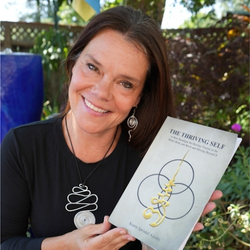
Karen Sprinkel is an individual and family trauma therapist with over 30 years of practice experience. As a licensed therapist in multiple states, she combines modalities, including EMDR, Brainspotting, Somatic Experiencing, and Internal Family Systems (IFS) to support clients healing from complex trauma. Karen is also a continuing education provider and the author of The Thriving Self.
As more clinicians and healers turn to ketamine, MDMA, and other medicines to heal trauma, the line between therapeutic experiences and therapy often blurs. How can practitioners ensure that these experiences heal rather than harm?
According to trauma clinician Karen Sprinkel, trauma healing requires both depth and discernment. She cites experiential training, client choice, and flexibility as the pillars of safe psychedelic work. Karen also encourages clinicians to recognize trauma across cognitive, somatic, and spiritual dimensions and to prioritize integration and humility in their practice. Effective healing is intentional, informed, and compassionate.
In this episode of Living Medicine, Dr. Sandy Newes sits down with individual and family trauma therapist Karen Sprinkel to talk about trauma-informed psychedelic care. Karen explains what defines a trauma specialist, how to safely prepare clients for psychedelic sessions, and the importance of flexibility and client agency in healing trauma.
This episode is brought to you by the Living Medicine Institute.
LMI is a training, resource, and membership program educating providers about the legal and safe use of psychedelic-assisted psychotherapy.
To learn more or participate, visit https://livingmedicineinstitute.com.
Leave a Reply
You must be logged in to post a comment.